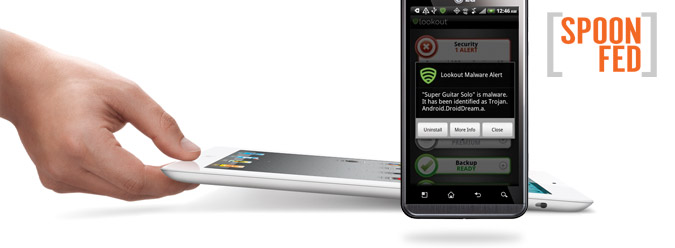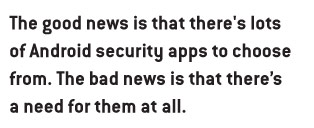As Apple Pushes the Envelope, Google Pulls Apps
Sign up to receive The Snapshot, a free special dispatch from Laptop Mag, in your inbox.
You are now subscribed
Your newsletter sign-up was successful
A lot of people think that the launch of the iPad 2 yesterday basically killed any chance of Motorola stealing the spotlight from Apple with its Android-powered Xoom tablet. In a way, though, yesterday’s unveiling couldn’t have been better timed. It distracted people from the news that Google had to pull upwards of 50 apps from the Android Market which were found to contain malware. While Steve Jobs was receiving a standing ovation, his biggest competitor was grappling with the double-edged sword of openness.
Of course, Jobs couldn’t help but mention that the Android Market has only about 100 apps optimized for tablets at the moment, compared to more than 65,000 for iPad. But the bigger concern is whether Google can protect its users from harm. According to Lookout Mobile Security and other sources, more than 50 apps contained DroidDream malware, which can be used to take administrative control over smart phones and potentially steal personal data. That’s pretty scary stuff for customers deciding between Android and iOS.
Lookout Mobile Security is only one of several companies that promise to protect Android users from malicious apps and other threats. The free version of Lookout’s software includes anti-virus and anti-malware protection, but the premium version adds features such as remote wipe and remote lock as well as a privacy advisor.
There’s also BullGuard Mobile Security 10 ($29.99), F-Secure Mobile Security ($39.99)—and some of the biggest names in the PC security market are jumping on the Android bandwagon, including McAfee, Norton, and Trend Micro. The good news is that there's lots of Android security apps to choose from. The bad news is that there’s a need for them at all.
Meanwhile, Apple demonstrated the strength of its more closed approach yesterday by announcing that it now has more than 200,000 million iTunes accounts and that it has paid more than $2 billion to app developers. Say what you will about the walled-garden nature of the App Store, but it certainly hasn’t suffered an attack like the one aimed at Android users. That’s just one of the benefits of Apple having complete control over both the hardware and the software.
Owning the whole widget, as Apple likes to say, has other benefits, too. Based on my hands-on time with the iPad 2, its dual-core A5 processor really works well with iOS 4.3, offering considerably snappier performance. One only need look at iMovie running smoothly on the iPad 2 and Movie Studio stuttering on the Nvidia Tegra-powered Xoom to know that only one of the tablets has been truly optimized for its dual-core architecture.
Apple’s hardware-software integration advantage even extends to accessories; the clever Smart Covers for the iPad 2 automatically turn the tablet on when opened. Some say the Smart Cover’s foldable design was inspired by a design by InCase, but only Apple’s integrates with both the iPad 2’s hardware and software.
Sign up to receive The Snapshot, a free special dispatch from Laptop Mag, in your inbox.
Will Android ultimately make a dent in the iPad’s market share? Of course, but Google will have to make a stronger case for openness while doing a much better job of protecting the buyers it’s attempting to woo.



